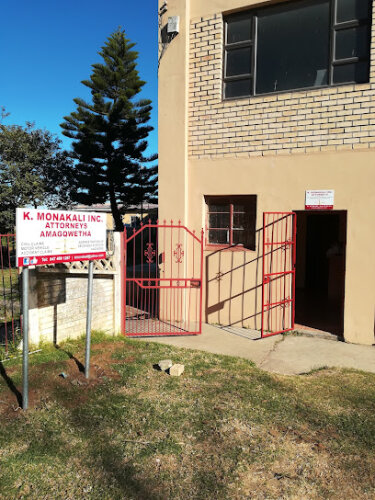Best Job Discrimination Lawyers in East London
Share your needs with us, get contacted by law firms.
Free. Takes 2 min.
List of the best lawyers in East London, South Africa
About Job Discrimination Law in East London, South Africa
Job discrimination occurs when an employer treats an employee or job applicant unfairly based on certain personal characteristics such as race, gender, disability, age, religion, or other legally protected traits. In East London, South Africa, like the rest of the country, workplace fairness and equality are protected by national laws, but local understanding and enforcement can be influenced by specific regional practices and industries.
East London is a diverse industrial hub with employment opportunities in logistics, automotive, manufacturing, education, and healthcare. Unfortunately, people may still face bias or prejudice in hiring, promotion, pay, or workplace conditions. South African law aims to protect workers and create equal opportunities regardless of background.
Why You May Need a Lawyer
If you believe you have been unfairly treated at work or during a job application process, legal assistance may be necessary. Some common situations include:
- Being demoted, dismissed, or denied a promotion for reasons unrelated to your performance or conduct.
- Experiencing harassment or bullying based on your personal characteristics.
- Receiving unequal pay for the same work compared to colleagues.
- Facing obstacles in hiring or training opportunities due to disability, pregnancy, or family responsibilities.
- Retaliation after reporting discrimination or harassment.
A lawyer can help you understand your rights, gather evidence, negotiate with employers, and pursue cases through the appropriate legal channels if necessary.
Local Laws Overview
In East London, job discrimination is primarily regulated by national legislation, particularly the Employment Equity Act (EEA) and the Labour Relations Act (LRA). These laws apply throughout South Africa and are enforced through forums such as the Commission for Conciliation, Mediation and Arbitration (CCMA) and local Labour Courts.
- Employment Equity Act (EEA): Prohibits unfair discrimination in employment policies or practices based on race, gender, sex, pregnancy, marital status, family responsibility, ethnic or social origin, colour, sexual orientation, age, disability, religion, HIV status, conscience, belief, political opinion, culture, language, and birth.
- Labour Relations Act (LRA): Protects employees against unfair dismissals, including those resulting from discrimination.
- Basic Conditions of Employment Act: Sets minimum standards for working conditions but also underpins non-discrimination principles.
Employers must actively promote equality and fair treatment in the workplace, and employees have the right to seek legal redress if discrimination occurs. Cases can be reported to the CCMA or taken to the Labour Court if necessary.
Frequently Asked Questions
What qualifies as job discrimination in East London, South Africa?
Job discrimination is any unfair treatment at work or during the hiring process based on characteristics like race, gender, age, disability, religion, or other protected grounds under South African law.
Does the law cover all types of workers?
Most employees and job applicants are protected, including permanent, temporary, part-time, and contract workers. Domestic workers also enjoy protection, though enforcement can sometimes be challenging.
Do I need evidence to report discrimination?
It helps to have evidence, such as emails, messages, witness statements, or written records. However, you can still report discrimination if you do not have direct evidence-legal bodies may investigate or help gather more information.
What should I do if I think I am being discriminated against?
Document your experiences, keep copies of relevant correspondence, and try to resolve the issue internally with your employer first. If that fails, you can approach the CCMA or consult a lawyer.
Can my employer retaliate if I report discrimination?
Retaliation for reporting discrimination is illegal. If you face negative consequences for making a complaint, this is itself a form of discrimination and can be challenged legally.
What are the possible outcomes of a successful discrimination case?
Outcomes may include compensation for damages, reinstatement in your job, changes in workplace policy, or disciplinary action against the offender.
How long do I have to report discrimination?
Generally, claims should be brought to the CCMA within 6 months of the alleged act. It’s best to act as soon as possible to ensure your case is considered.
Can I get free legal advice or representation?
Yes, some organizations offer free legal advice or support, especially if you cannot afford a private lawyer. Check with local legal aid clinics, trade unions, or the Legal Aid South Africa office in East London.
Is mediation an option in discrimination disputes?
Yes, the CCMA and other bodies offer mediation and conciliation before moving to formal hearings. Mediation can help resolve issues quickly and preserve working relationships.
What if discrimination occurs in recruitment, not just employment?
Discrimination in recruitment is also illegal. You have the right to challenge unfair treatment even if you are not yet an employee.
Additional Resources
If you need further guidance or support, consider these resources in East London and South Africa:
- Commission for Conciliation, Mediation and Arbitration (CCMA): Handles workplace disputes and discrimination claims.
- Labour Court, East London: Adjudicates serious cases that require judicial review.
- Legal Aid South Africa: Provides free legal advice and representation to eligible residents.
- Department of Employment and Labour: Offers information and oversight on labour rights and workplace equality.
- Trade unions: Many unions have legal teams or representatives who can assist with discrimination cases.
- South African Human Rights Commission: Protects and promotes human rights, including non-discrimination in employment.
Next Steps
If you suspect or have experienced job discrimination in East London, South Africa, here are the recommended steps:
- Gather any evidence, such as written communications, contracts, or witness details.
- Attempt to resolve the matter through your employer’s HR or grievance procedures.
- If unresolved, contact the CCMA for advice and to lodge a formal complaint.
- Consult with a labour lawyer or Legal Aid if you need professional guidance or representation.
- Attend mediation or hearings as required, and stay informed about your rights throughout the process.
Standing against discrimination not only protects your individual rights but also helps create a fairer workplace for everyone in East London. Legal professionals and local institutions are available to help you navigate this process.
Lawzana helps you find the best lawyers and law firms in East London through a curated and pre-screened list of qualified legal professionals. Our platform offers rankings and detailed profiles of attorneys and law firms, allowing you to compare based on practice areas, including Job Discrimination, experience, and client feedback.
Each profile includes a description of the firm's areas of practice, client reviews, team members and partners, year of establishment, spoken languages, office locations, contact information, social media presence, and any published articles or resources. Most firms on our platform speak English and are experienced in both local and international legal matters.
Get a quote from top-rated law firms in East London, South Africa — quickly, securely, and without unnecessary hassle.
Disclaimer:
The information provided on this page is for general informational purposes only and does not constitute legal advice. While we strive to ensure the accuracy and relevance of the content, legal information may change over time, and interpretations of the law can vary. You should always consult with a qualified legal professional for advice specific to your situation.
We disclaim all liability for actions taken or not taken based on the content of this page. If you believe any information is incorrect or outdated, please contact us, and we will review and update it where appropriate.










